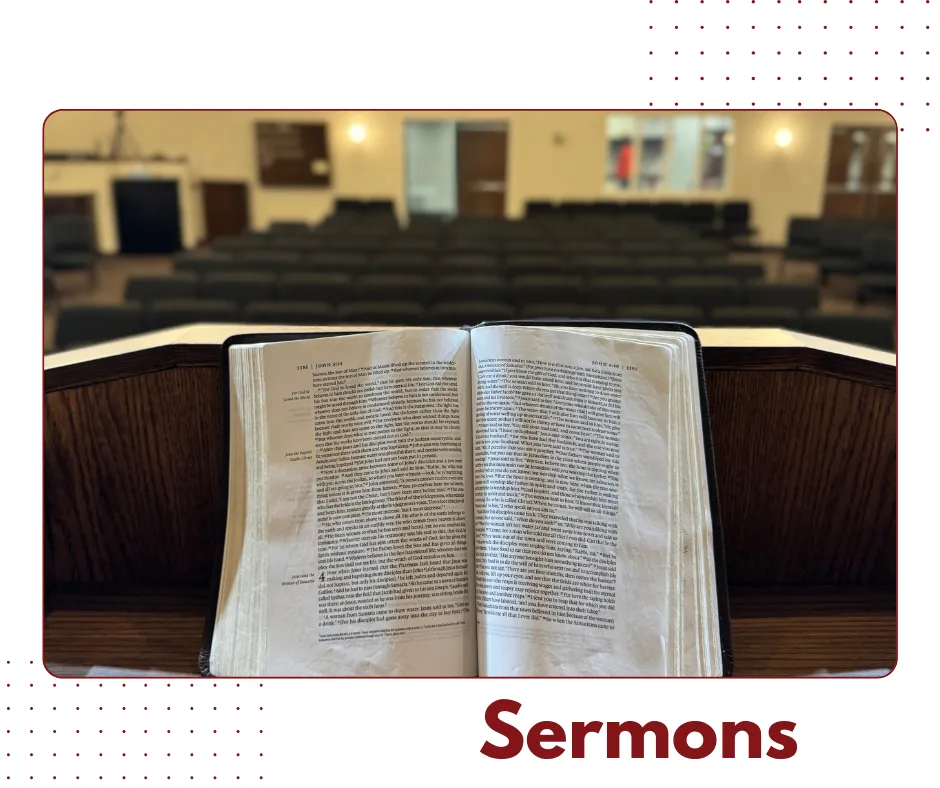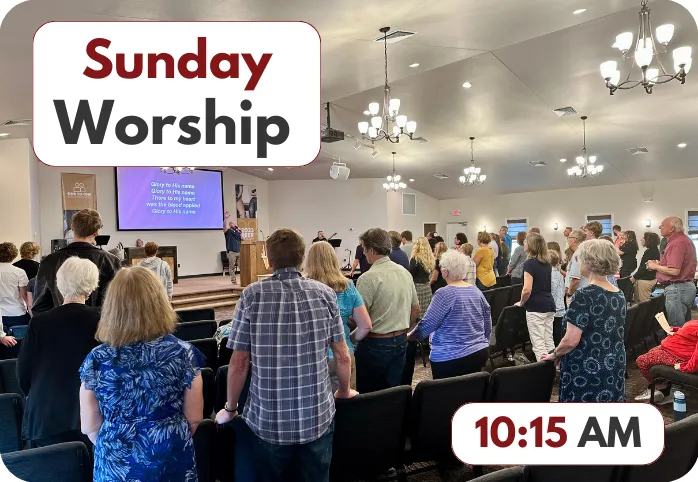Sermon Library
We live stream our services every Sunday at 10:15 AM via our YouTube channel.
We also have a full sermon library for you on-demand so you can revisit previous services and messages also.
Make sure you subscribe & request notifications from our YouTube channel as well. Enjoy!

Worship with us:
Sundays at 10:15 AM
Glorify, Edify, Testify
Sunday Service Info
9 AM: Sunday School
10:15 AM: Worship
Wednesday Services
(Re-Starting in January)





